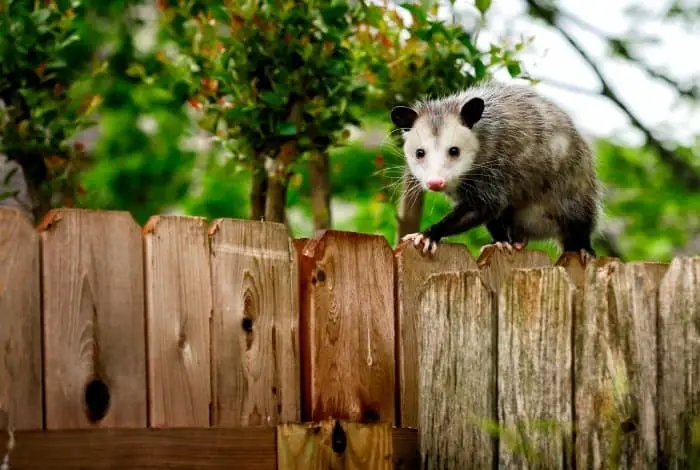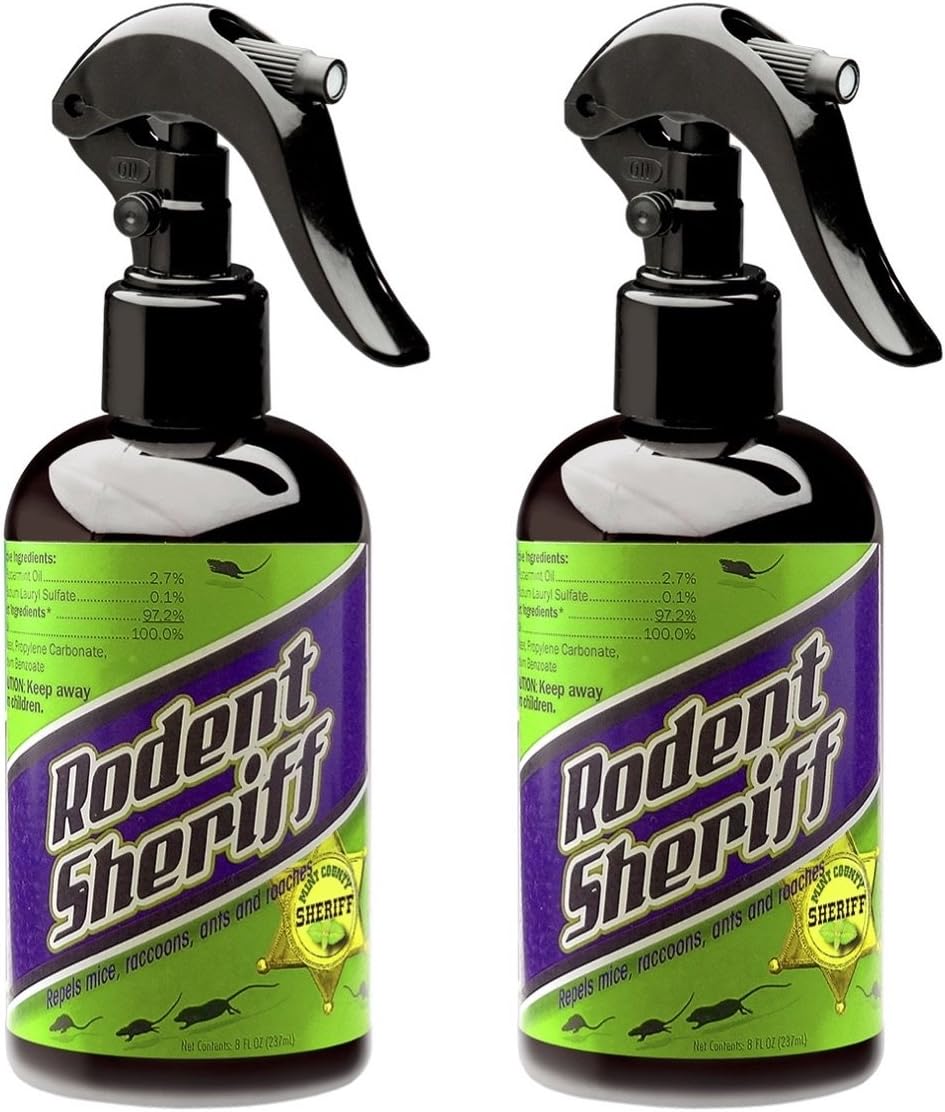Last Updated on December 28, 2021 by
A possum may look like a cute and adorable creature, but in reality, it wreaks havoc in your home; the earlier you learn how to get rid of a possum, the better.
Opossums are a known nuisance in and around the home and garden. They rummage through garbage cans causing unending messes or steal your pet’s food. Opossums become a big nuisance when they build their home in your attic. They can haunt you forever if they get into your attic. It will take plenty of work to get them out but if you follow the right measures they will leave.
Do not wait for them to haunt your home, take up protective measures before they encroach in your home. How to get rid of a possum can be tricky but with some little work, you can succeed in eliminating this nuisance.
How to Get Rid of Possum in the Backyard
The best way to combat possum problems is to first understand their habits. They have habits that are different from other creatures. They include:
- Mostly prefer wooded areas or open fields. But love abandoned areas like burrows, brush piles, and tree crevices.
- These creatures are nocturnal meaning they are active in the night and sleep through the day. This makes it difficult to see them. They leave some telltale signs of their presence through tracks, droppings, overturned garbage cans, etc.
- The possum is an omnivore feeding on nuts, plants, fruits, eggs, and small animals like mice and frogs.

Opossum Control
- Pick fruits and garden crops when they are ripe. This discourages opossums from eating rotten fruit on the ground
- Do not leave pet food or trash outdoors during the night. Trash and food is a good invitation to the opossums
- Secure pet doors at night to avoid the opossums entering the house through pet doors.
- Remove brush piles, cover all concrete slabs to close off areas that opossums love to hide.
How to Get Rid of a Possum Completely
- Opossum Repellants. There are many products in the market that repels wild animals. However, repellants offer only a little relief. Other repellants include the use of motion-activated sprinkler systems. This system startles the creatures and frightens them off.
Rodent Sheriff Pest Control – Ultra-Pure Peppermint Spray

- Using Traps. Trapping opossum is another common method that is employed to eradicate possum. Knowing how to trap an opossum is not as difficult as what to do with it once caught. Once it is caught, it requires relocation by a licensed wildlife expert. In most states, it is not permitted to kill the opossums. You may also use boxes or cages to trap them. These cages should measure about 10 x 12 x 32 inches. Set these traps along the possum trails and known travel routes. Use baiting like melons, grapes, or bananas.
- Fencing. You can erect fences to stop the invasion of the opossum. Woven wire or electric fencing is sometimes used for possum control. The fencing should be about 4 feet high with the top facing away from the garden to prevent them from climbing over. You may add electric fencing approximately 3 – 4 inches over the top.
Read more about How to Get Rid of Voles
- Prune overgrown bushes, shrubs, and trees
- Remove brush piles and debris
- Pick all the fallen fruit on the ground around fruit trees
- Keep all the garbage cans tightly closed. Make sure all the lids fit well
- Keep pet food away at night
- Close or block all off any entrances or openings near and around your home
Conclusion
FAQs
What is the fastest way to get rid of a possum?
Possums are small, furry animals that can cause a lot of damage in the garden. They are often quite harmless, but they can be a nuisance when they overwhelm an area. They’re known for producing droppings and urine which can spread disease in the garden and harm plants.
Possums have impressive jumping abilities and sharp teeth, as well as a long tongue to help them catch insects. It is also important to note that possums are very curious animals and they will be drawn to any new sights or smells in your yard.
If you've had a bad experience with them in the past, here's what you can do to get rid of them for good.
Bad smells and loud noises are the most likely things to scare a possum away. Different types of smells may work depending on the type of animal. For example, if you want to scare raccoons away from your property, then using predator urine will work really well. This is because raccoons are afraid of predators and that fear will help to keep them away from your food sources for good!
The quickest way to get rid of a possum is to use a cage trap that has a non-toxic lure. But make sure to place it correctly in the area you want it to be caught. You should also put up signage warning other animals about the trap so they don’t come into contact with it or eat the bait.
How do you find a possum?
It can be really hard to find the possum that has been hanging around your garden and/or home.
This is because a possum's best defense is to stay hidden and wait for an opportunity to pounce. There are a few ways to figure out where it’s hiding. For instance you can look around for signs of droppings that it has left. If you find some, try and find the scratch marks around it. The marks will indicate that the possum has been moving through your yard on top of an object like a tree or post so it is easier for him to escape from his predator if he needs to run away quickly
Which possums are the hardest to scare away?
A well-fed possum can’t be scared away by anything you could do, no matter how loud or how long you smell. They mostly only leave the area when there's something that is a lot more dangerous than humans - such as a coyote, or when it's getting dark outside.
This doesn't mean that there aren't other methods that may work, it is just that you might want to hire a professional if you find yourself dealing with a truly settled in possum that simply holds its ground due to being well-fed and comfortable.
Caroline is a gardener who loves to get down to the nitty–gritty of gardening. She proudly proclaims herself as a ‘dirt worshipper‘ and can often be found deep in the garden, covered in soil and singing to her plants. As a self–proclaimed ‘plant whisperer‘, Caroline believes that plants need love and attention just like any other living thing, and she loves to give them both. When she‘s not tending to her garden, you can often find her researching the latest gardening trends, or teaching others how to make their gardens thrive


